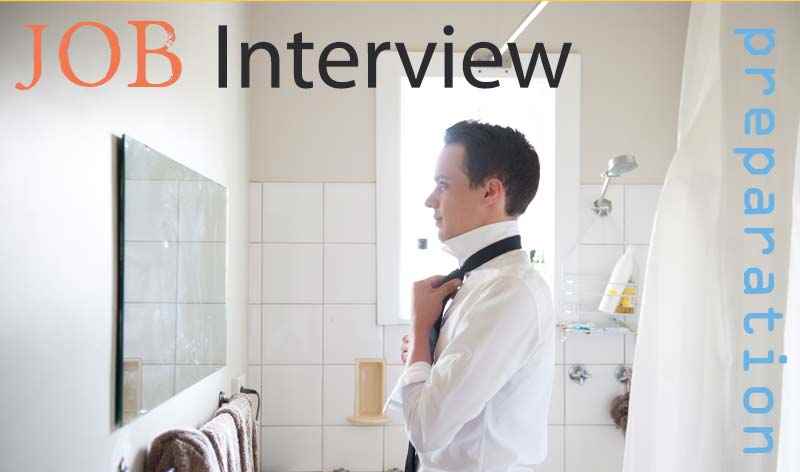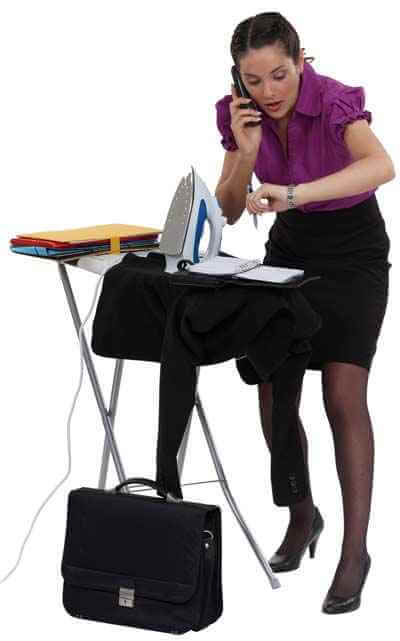A guide to giving your best job interview
The first thing to remember about job interview preparation is that you really do have a chance, so go in there with a positive attitude. Yes, it sounds silly, but the people sitting behind the desk asking you questions have ALREADY decided that you might be right for this job, based on your CV and covering letter. Interviewing takes time and HR staff rarely interview candidates who are unlikely prospects. You’ve got your foot in the door – now you’ve got to keep it there!
So the job interview has a number of purposes:
- To see if you are the best candidate out of all those that applied
- To evaluate whether it’s likely that what you wrote on your CV is accurate (particularly those parts which relate to the role you’re applying for), and to ask you to elaborate on it
- To see if you will fit into the organisation
Job interview preparation: Know when and where
First things first, make sure you know everything you need to know to show up at the interview. Know where you’re going and when you need to arrive, and plan how you will get there, checking for any possible travel disruptions. Take careful note of anything you’ve been asked to bring.
Job interview preparation: The night before…
Make sure you get a good night’s sleep the night before, and eat a decent breakfast on the day. Try and relax, and think about how you will feel when you get the job. Imagine the interview in your mind going well. Positive thoughts like this will enhance your performance.
A lot of people feel very nervous at job interviews. Try to remember that interviewing people is in itself quite a nerve racking experience! It is a two way process, where you find out if the organisation is right for you, and they find out if you will be a good fit for them. So try to relax, breathe deeply and avoid too much caffiene, sugar, Red Bull or anything else that makes you more jittery than usual.
 Job interview preparation: Look sharp
Job interview preparation: Look sharp
Dress smartly, with clean, ironed clothes and good personal grooming – fresh breath, clean hands and nails, clean teeth! Don’t have a smoke just before the interview as you’ll bring the smell into the room – it’s a lot stronger than you think for non-smokers.
Job interview preparation: Be ready
Take with you a copy of your CV, covering letter and the interview invitation if you have one, as well as anything you’ve been asked to bring. If you’re in the type of job where you can take along evidence of your abilities or achievements (for example, marketing campaigns you’ve planned, or graphics you’ve designed, collect these together and have them available in a smart presentation folder that’s easy to flick through.
TIP: You’ll probably be interviewed by more than one person so if you’re planning on sharing something, have either more than one copy or items that can be viewed and then swopped. Otherwise, your other interviewers will be sitting there twiddling their thumbs!
Job interview preparation: Know yourself
You can pre-empt the kind of questions you’ll be asked in a job interview by looking carefully at the job ad. Expect questions about your skills, past work experience and achievements that tie to what your prospective employee is looking for. Be ready to give specific examples. When you’re dealing with these questions, take care not to come over in an over-confident, arrogant or aggressive way. Aim to state even your most amazing achievements with a good measure of humility. For successful projects, explaining where you feel you could have done better (and how that impacted future projects) is a good way to earn brownie points.
Job interview preparation: Know the job
Make sure you know the job description back to front, paying careful attention to both the role and person specification. If you’ve not worked in this role before, good ways to prepare are:
- Speak to anyone you know who holds this role for advice and background information
- Search on job websites for other job adverts for the same role – you may see skills or aspects of the job listed that weren’t included in the ad you responded to. Be ready to offer examples of how you have these skills, in case they are required.
- Search profiles of existing employees at this or other companies who hold the role, for more clues as to the type of person and skills required.
Job interview preparation: Know the Company
It can’t be emphasised enough how important this is, or how intensely irritating it is when a candidate shows up knowing nothing about the Company he or she claims to “want to work for”. So research carefully – good sources of information include:
- The Company’s website – check in particular any ‘about’ / ‘history’ sections, and any ‘why work for us’ info in the HR section if they have one. Also make sure you understand the products and services they offer, and who their target market are.
- Google – particularly for press releases and press coverage.
- The Company’s literature (marketing brochures, etc) if you can get hold of any.
- Companies House, which gives you an understanding of their financial status – there’s no need to blurt this out at the interview but it helps you see where the Company sits in relation to others within the industry.

Job interview preparation: Know the industry
Have a good understanding of the industry in which the organisation operates. Look for their competition – both geographically and on the web – and compare products/services.
Job interview preparation: Be ready to impress
There will likely be other candidates for the role you’re applying to, so you need to figure out how you can make yourself stand out. Depending on the role, you may be able to offer your prospective employer practical ideas that show you’re a generator. For example, if you’re applying for a business or marketing role, suggest one or two promotions your prospective employer could try to generate awareness or new business. Make sure you’ve thought your ideas through in terms of how they would work and the likely cost/return.
After the interview
Make sure you thank your prospective employer for their time in seeing you. If you hear after the interview that you have not been successful, always politely ask for candid feedback on the interview and on your application. This will really help you improve your performance in future. Never, ever burn your bridges – if the experience wasn’t positive, the employer refuses to give feedback or the feedback is negative, just thank them anyway – you may want to apply to the same company further down the line.

 Job interview preparation: Look sharp
Job interview preparation: Look sharp